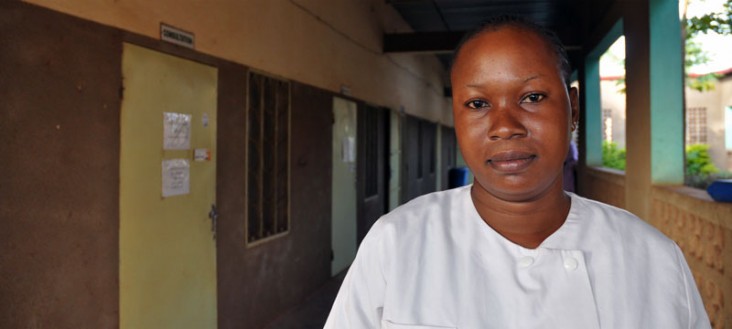- What We Do
- Agriculture and Food Security
- Democracy, Human Rights and Governance
- Economic Growth and Trade
- Education
- Ending Extreme Poverty
- Environment and Global Climate Change
- Gender Equality and Women's Empowerment
- Global Health
- Water and Sanitation
- Working in Crises and Conflict
- U.S. Global Development Lab

Despite the demonstrated need for health innovations in many low-resource settings, many new tools and practices never enter into widespread and sustained use in these environments. As part of the U.S. Agency for International Development's (USAID's) efforts to end preventable child and maternal deaths, the Accelovate project aims to develop, introduce, and support the scale-up of new health tools and technologies in low-resource settings worldwide.
The strategic objective of the Accelovate project is to increase the availability and sustained use of affordable, appropriate, and acceptable innovations in low-resource settings that are designed to accelerate reductions in mortality and morbidity, with a particular emphasis placed on field introduction and scale-up.
To achieve this goal, Accelovate uses the following approach:
- Identify and prioritize promising existing and emerging technologies and engage in selective development of affordable, appropriate and effective health innovations that show promise for sustainable market.
- Lead efforts to scale up global adoption of innovative health technologies with an emphasis on bridging the "research-to-use" gap in developing country settings.
The Accelovate project is a $24.9 million, 5-year cooperative agreement extending from September 2011 to September 2016. The project is led by Jhpiego with field activities primarily in sub-Saharan Africa. Other partners include Johns Hopkins Center for Bioengineering Innovation and Design and Population Services International.
Learn more about the Accelovate project through the project website.







Comment
Make a general inquiry or suggest an improvement.